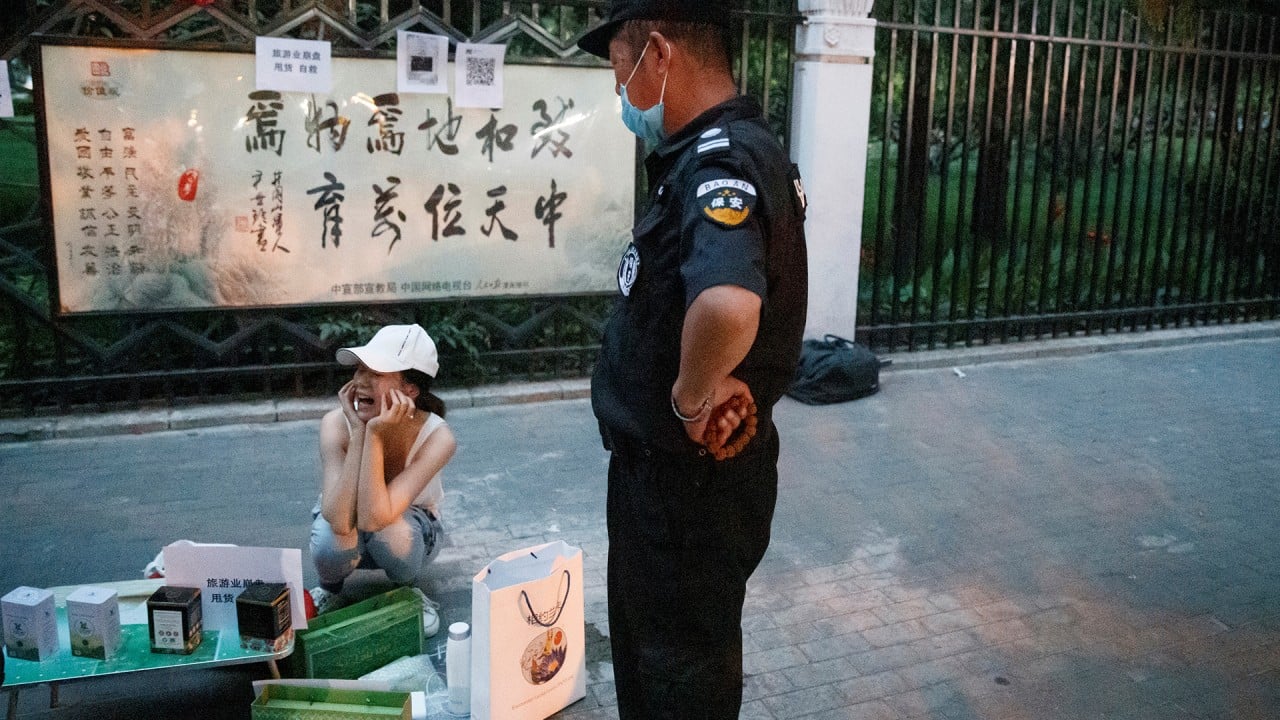
China tackles ‘corruption in numbers’ to ensure economic, social stability in 2022
- New statistical guidelines highlight Beijing’s intention to narrow the gap between government narratives and market reality
- Many have long questioned the reliability of China’s economic data, a concern highlighted with many sectors of the economy facing various coronavirus pressures
China has pledged to improve the quality of its economic data to better assist Beijing policymaking at a time when positive official figures in some cases contrast sharply with the reality faced by small businesses and individuals suffering under various coronavirus pressures.
New statistical supervision guidelines were approved by the Central Commission for Comprehensively Deepening Reforms at the end August, although the rules that lay out an intention to narrow the gap between government narratives and market reality were only released by the State Council on Tuesday.
“[We must] adhere to scientific methods to make statistics timely, accurate and reliable. We must prevent falsehood and resolutely curb ‘corruption in numbers’,” the guidelines said.
“The effectiveness of the statistical supervision mechanism needs to be improved.”
The focus will be set on supervising whether cadres thoroughly implement the decisions and arrangements … in promoting economic and social development
Authorities plan to carry out routine and special inspections to ensure the authenticity of data, while also monitoring local implementation of key national strategies and de-risking campaigns.
Routine inspections will be conducted every five years, while special inspections will target regions and departments with suspected problems.
“The focus will be set on supervising whether cadres thoroughly implement the decisions and arrangements of the Central Committee of the Chinese Communist Party and the State Council in promoting economic and social development, and whether there are problems such as poor performance, insufficient accountability or even fraud and deception,” the guidelines said.
China’s anti-corruption probe finds ‘fabricated’ economic data fraud
A total of 278 officials were punished during the first round of inspections, while 787 companies received administrative punishments for violating statistics regulations.
The reliability of China’s economic data has long been questioned, mainly from overseas observers, who have called into question figures including gross domestic product (GDP) growth, household income and unemployment.
Economic figures, particularly headline growth, are key to evaluating the performance of local government officials and deciding promotions amid China’s economic planning traditions.
A frequently cited case was that when provincial GDP was combined, it usually outpaced the national total.
Why are China’s policymakers putting ‘stability’ above all else in 2022?
A most recent concern is that government data has failed to deliver the full economic picture, particularly the situation of vulnerable sectors.
Many policy advisers are worried that it may undermine efforts to ensure economic and social stability in 2022, which is a key year for leadership changes.
Is China rich or poor? Beijing’s conflicting data sows confusion
“Where is the data to support it? The numbers are all pretty good,” he told a forum held by the China Centre for International Economic Exchanges.
“There is not enough data showing the negative side,” added Lou, who is now director of the foreign affairs committee of the Chinese People’s Political Consultative Conference, the country’s top political advisory body.
Beijing has also endeavoured to fix statistical loopholes by unifying the calculation of provincial GDP and building up directly managed survey teams, while it has also downplayed the pace of economic expansion, shifting attention to the quality of growth instead.
To reduce local incentive for data manipulation, the central government stipulated that statistics bureaus will not be asked to accomplish certain development goals, while the use of statistical data as part of performance appraisals or qualifications for individuals has been restricted.


